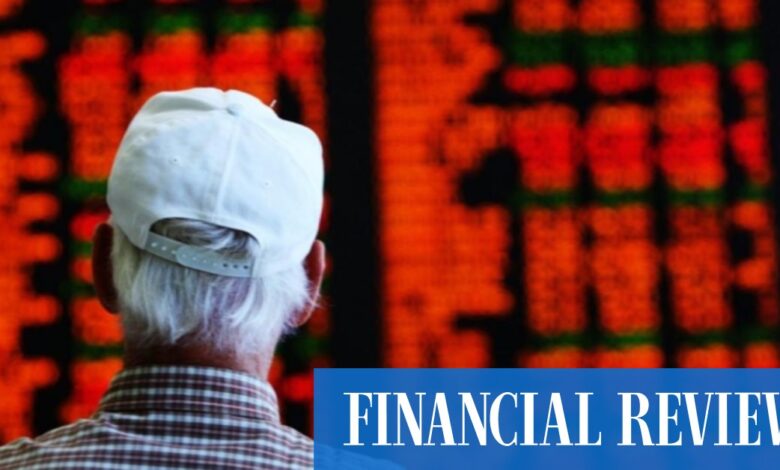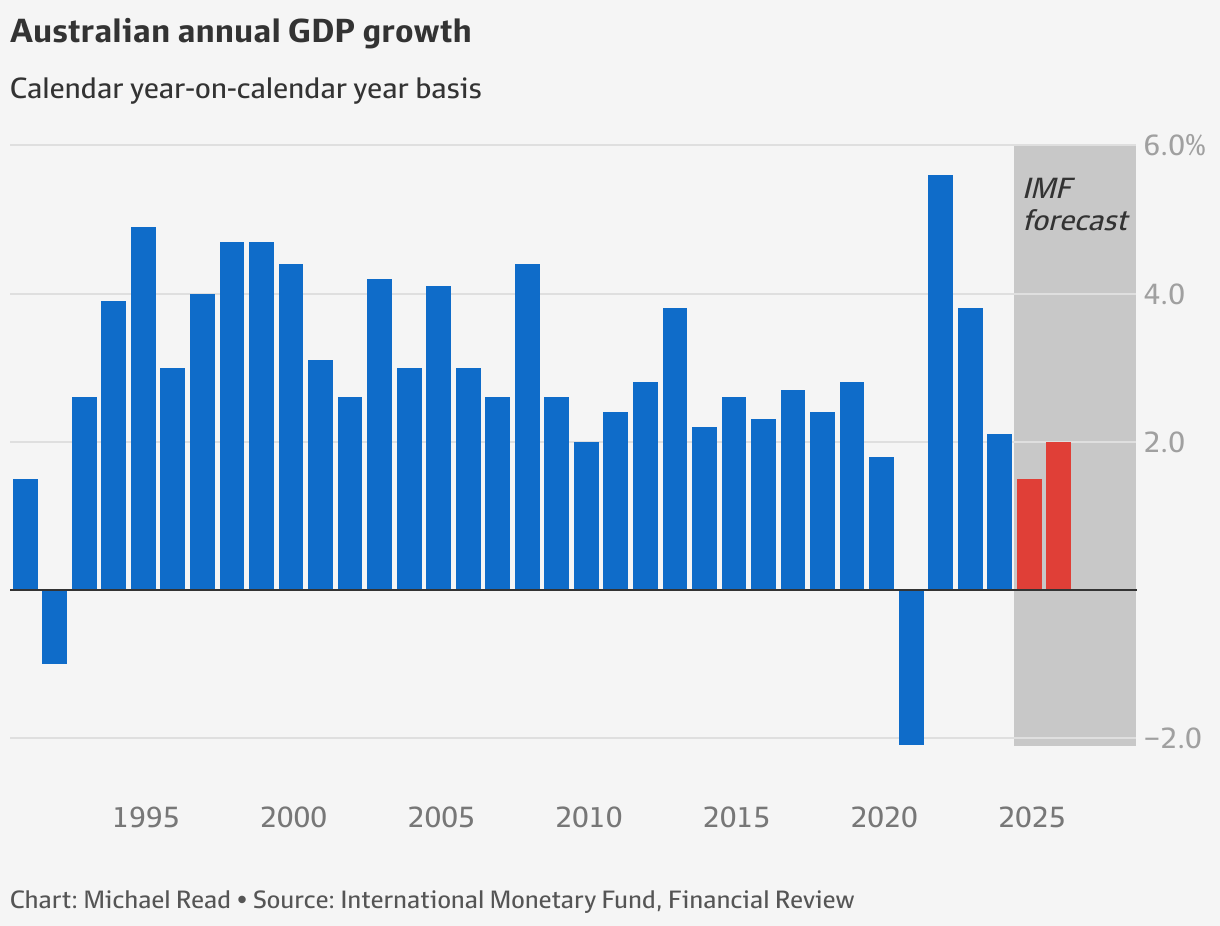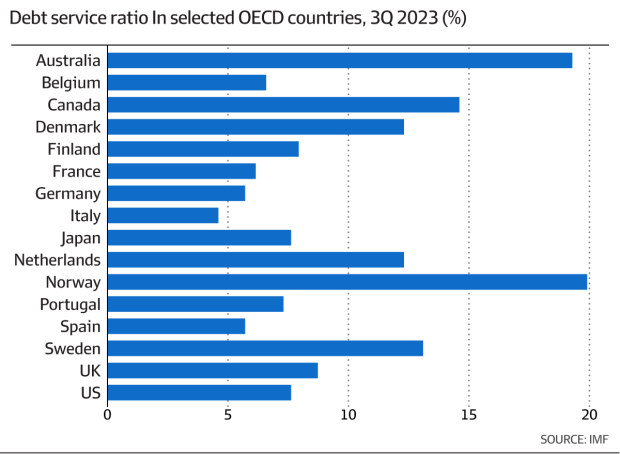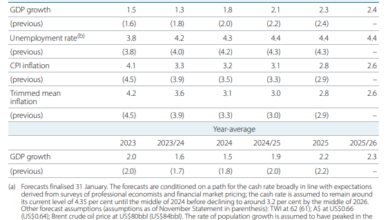Sticky inflation could cause sharemarket sell-off: IMF


The forecast is in line with the Reserve Bank of Australia’s most recent economic projections and little changed from the IMF’s last update in January. Growth is forecast to recover to 2 per cent in 2025, which would still be weak by historical standards.
Asset markets vulnerable
But the IMF warned that a disconnect between financial market sentiment and economic fundamentals posed a threat to both its growth projections and financial markets.
Asset price volatility had fallen markedly despite measures of economic uncertainty reaching elevated levels, the IMF said in its half-yearly global financial stability review.
IMF financial counsellor Tobias Adrian warned that the downward trend in inflation may have stalled in some countries, while geopolitical tensions that disrupt supply chains and energy markets could cause inflation to accelerate.
Mr Adrian said an adverse shock, such as further high inflation prints, could cause investors to drastically scale back their expectations for rate cuts and send volatility soaring.
“If inflation remains high, such lofty expectations could topple, which could lead to a correlated sell-off of assets, from bonds to stocks to crypto assets,” Mr Adrian said.
“Under this scenario, financial conditions would broadly tighten. Most immediately, some investors would face losses on the assets they hold, especially leveraged investors whose negative returns would be magnified.”
While markets are not fully priced for a rate cut from the RBA this year, investors expect three 0.25 percentage point rate cuts in the Eurozone and two cuts by the US Federal Reserve.
Households eat into savings
In Australia, a sharp rise in mortgage payments will weigh on household spending and growth this year.
The IMF found that Australian households were more sensitive to changes in interest rates than virtually any other consumers globally because of the dominance of variable-rate mortgages.
As a result, Australian households devote almost one in every five dollars of income to repaying home loans, including principal. Only Norwegian households had a higher debt serving ratio.
The burden of high interest rates has forced households to eat into their savings. Excess savings accumulated by Australians during the pandemic have declined to about 3.5 per cent of GDP from a peak of about 11 per cent, the IMF found.

But high interest rates have done little to rein in house price growth. Inflation-adjusted Australian property prices are now 10 per cent higher than they were before the pandemic, with only the US, the UAE and Japan recording stronger growth.
Though a soft landing for the global economy remains the IMF’s base case, IMF economic counsellor Pierre-Olivier Gourinchas said there was still some way to go on the journey back to low inflation.
Inflation in the labour-intensive services sector remains stubbornly high, the IMF said, and price pressures could intensify due to rising oil prices and the prospect of further trade restrictions on Chinese exports.
Growth in the global economy is forecast to hold steady at 3.2 per cent in both 2024 and 2025, with a large near-term upward revision in US activity offset by declines in forecast GDP growth in most other advanced economies.
Professor Gourinchas warned medium-term global growth prospects were harmed by the trend toward trade restrictions and industrial policy.
“Trade linkages are already changing as a result, with potential losses in efficiency. The net effect could well be to make the global economy less, not more, resilient. But the broader damage is to global cooperation. It is still time to reverse course,” he said.
Prime Minister Anthony Albanese announced last week he would introduce into parliament a Future Made in Australia Act to try to compete with America’s Inflation Reduction Act and similar schemes adopted by nations such as Korea, Japan, Canada and the European Union.
Former Reserve Bank governor Bernie Fraser warned on Monday Labor’s pivot to industrial policy was likely to waste taxpayers’ money, while Productivity Commission chair Danielle Wood has said it could entrench subsidy dependent industries.





